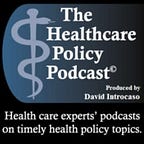According to the non-profit Mapping Police Violence, since 2013 when experts first starting tracking police shootings, last year was the deadliest year on record with 1,176 law enforcement gun deaths, or more than three people per day and nearly 100 per month. In 2022 Blacks were three three times more likely to be killed by police than Whites. However in, for example, MPLS and Chicago, Black shooting deaths were respectively 28 and 25 times more likely than White. In her recently published book by Viking Press, Prof. Schwartz explains how the corruption of the 4th amendment and Civil Rights law, the creation of the legal fiction “qualified immunity” and other reasons make it nearly impossible to police the police.
During this 38-minute interview, Prof. Schwartz begins by discussing the case of Ornee Norris. She in turn explains the courts’ undermining of 4th amendment’s protection from unreasonable searches, civil rights protections, specifically section 1983 of the 1871 Civil Rights Act, and the Supreme Courts 1967 creation of, in Pierson v. Ray, of qualified immunity, discusses the case of systematic violence by Vellejo, CA, police, the failure by governments to learn from these cases, efforts by states to pass laws ending qualified immunity, notes the value of Freedom of Information Act (FOIA) requests, and finally comments on the issue of the militarization of the police.
Joanna Schwartz is Professor of Law at UCLA School of Law and the Faculty Director of the David J. Epstein Program in Public Interest Law and Policy. She was a recipient of UCLA's Distinguished Teaching Award in 2015 and served as Vice Dean for Faculty Development from 2017-2019. Beyond Shielded, her recent scholarship has been published in the Yale Law Journal, Stanford Law Review, University of Chicago Law Review, Columbia Law Review, New York University Law Review, Michigan Law Review, Northwestern Law Review, Georgetown Law Journal, UCLA Law Review, and elsewhere. She has also written for The New York Times, The Washington Post, The Los Angeles Times, USA Today, The Atlantic, The Boston Review, and Politico, and has appeared on NPR’s Fresh Air, CBS Sunday Morning, PBS NewsHour, ABC News, CNN, MSNBC, and elsewhere. Professor Schwartz is also co-author with Stephen Yeazell and Maureen Carroll of a leading casebook, Civil Procedure (11th Edition). Professor Schwartz was graduated from Brown University and Yale Law School. She clerked for Judge Denise Cote of the Southern District of New York and Judge Harry Pregerson of the Ninth Circuit Court of Appeals.




